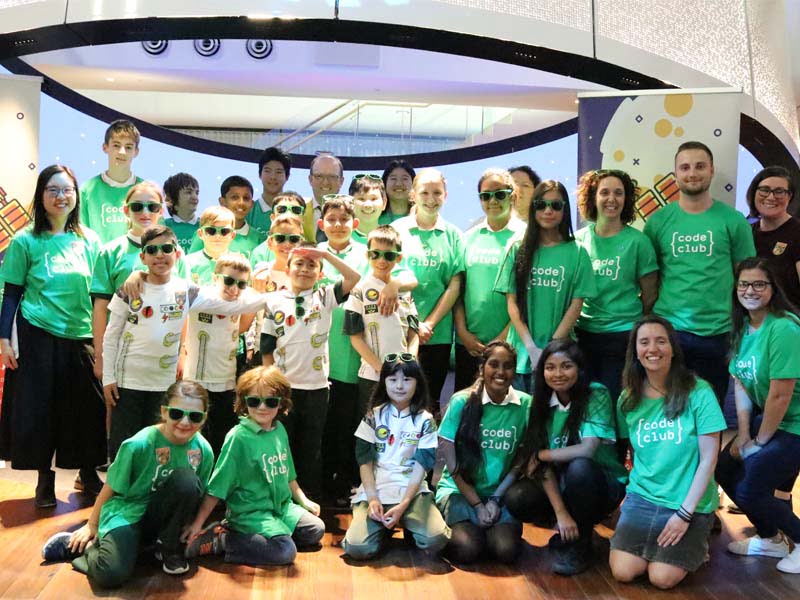Australia may not be a computer science superpower right now, but its future looks bright. An Aussie kids coding organisation successfully broke a world record on Tuesday, bringing nearly 30,000 children together to experiment with technology across more than 50 countries.
Code Club Australia’s Moonhack event saw 28,575 kids take place in a coding event in 56 countries.
More important than the world record, Code Club Australia general manager Kelly Tagalan said Moonhack is all about getting students interested in the technologies of the future, and prepared for the changes that are coming to most industries.

“The kids are really empowered, they feel like they are part of something that’s really big, a lot bigger than themselves,” Ms Tagalan told InnovationAus.com.
“These kids now understand that no matter what background they’re from, they can all get access to these really fun and great opportunities.”
“I think every kid should learn to code, it should be as common as teaching kids to swim. We need to teach our kids how to create with technology, not just consume it.”
The Moonhack achieved the world record for the most people coding in one day, breaking the record the organisation set itself last year as part of the inaugural event.
Last year’s event saw just over 10,000 kids taking place, but the expansion around the world this time around saw this number nearly triple.
The participants, the majority aged between nine and 11, were encouraged to complete an open source project in Scratch, Scratch Jr or Python focusing on space.
In Australia, more than 17,000 children took part, with nearly an even gender split among participants.
“Moonhack has grown a lot more than we anticipated. We’re really proud of the collaboration that it represents. It was amazing putting the projects out in different languages, we were able to grow the momentum and capacity,” Ms Tagalan said.
Code Club Australia was founded in 2014 by the now-Fishburners CEO Annie Parker, as the local branch of the international organisation. It has received more than $1 million from the Telstra Foundation. The organisation also received $500,000 from the federal government at the end of 2015.
The organisation is now planning to broaden its offering to older students, and introduce the use of Sonic Pi, a tool that teaches programming concepts through sound.
“A lot of kids aren’t naturally inclined to play on the computer and get coding, but a lot of them are into music. This is empowering them to express themselves with code, which is quite powerful,” Ms Tagalan said.
The organisation has grown rapidly in the last year, with 2000 clubs now established across the country.
Ms Tagalan said Code Club Australia has an important role to play in preparing communities for the impact of automation, and equipping the next generation with the skills needed to enter the workforce.
“This will open up opportunities for underserved communities and get people to work. In 10 to 15 years these people will need digital skills in order to have something to do in modern industry. I’m really looking forward to seeing the innovation in these industries changing the face of lots of things,” she said.
“You can really innovate in every industry, and bring manufacturing back. Kids that have this background will be prepared to enter into the workforce with a new spirit of innovation that we’re not seeing currently.”
Do you know more? Contact James Riley via Email.

